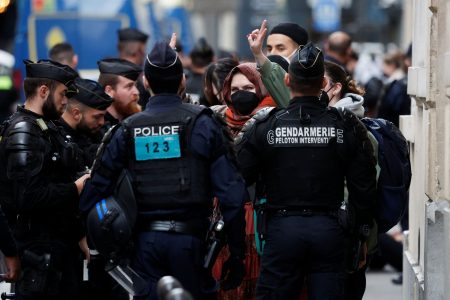Those closely following the many contacts, recently, on a geopolitical level will realize that the mobility of transnational interests and generally speaking the preparation for the unopposed domination of the major wave of globalization that emerged in the 1990s, reached gigantic proportions at the dawn of the new century and was under pressure in recent years due to the financial crisis and overgrowth of Islamic movements.
At present everything seems to be in motion again, with the resolution of the crisis in the Middle East being at the forefront.
Following the “legitimization” of Iran and the direct involvement of Russia in the war against the jihadists, the moves on the international chess board create the impression that the world is seeking out a way for controlled circumstances, preferably peaceful , to prevail and allow for the development of broader zones of growth and trade on the planet.
In this first, new period of globalization, many neglected zones were offered opportunities for progress; China, India and Brazil became financial superpowers, Russia ‘returned’, Africa ‘emerged’ and dreams of prosperity swept across the great Muslim zone, from Northern Africa and the Middle East to Indonesia.
This emergence of opportunities is maintained the dream alive, despite the hardship, tension and military conflicts it fueled.
Last Friday, the first – non-publicized – meeting since 2004 between the Prime Ministers of India and Pakistan took place and caused a global impression within the aforementioned context.
The Indian Prime Minister Narendra Modi traveled to Lahore to meet with his Pakistani counterpart Nawaz Sharif in an effort to address the differences that separate the two countries and create the circumstances for financial cooperation.
The two leaders are trying to overcome the era of religious conflicts and the nuclear race over the disputed zone of Kashmir, in order to better take advantage of the financial growth circumstances of the crowded zone they lead.
The international press closely watched over the meeting which many analysts praised. There is no shortage of people who believe that both countries are trying to create the circumstances for peace in the broader region and have an effect on the tormented Middle East, which fuels tensions both in Pakistan and India.
In the past few days the newspapers in Tehran announced the Iranian government plans to purchase 450 passenger aircraft, in order to demonstrate their financial prospects and to reinforce the updated role of the until-recently isolated country.
Iran has the ambition to become a leader in the broader region and act as a guarantor of prosperity and security. It is already helping the West to fight the jihadists, sending weapons and military advisors to the frontline, while mobilizing allies and friends in Syria and Lebanon.
It cannot go unnoticed either that in recent times the Russian Armed Forces have attacked both the jihadists and the Syrian opposition that is fighting against Assad.
Even the isolated actions of the Israeli forces on specific targets give the impression of major preparations taking place in the Middle East.
Many believe that the combination of the Russian involvement in the Syrian conflict, liberation of Iran, mobilization of Israel, activation of Pakistan and India, along with the pressure on Turkey and Saudi Arabia suggest that preparations are being made for a new resolution of the crisis in the Middle East.
It would be risky to talk about a generalized global plan being activated, but the aims of the powerful are at least clear.
The Americans may not be as involved as they were in the past, but it is clear that they are setting the tone, by coordinating old and new forces in our polarized world.
At present the Americans, Europeans, Chinese, Russians and Indians have many reasons to want peace in the Middle East, to open new trade routes to the populous areas in Asia, to regenerate globalization and through it establish the circumstances for growth in their countries and with them, highlight the opportunities for progress, in the most remote and forgotten areas and people.
The commonly held belief is that world will prevail only if there are circumstances for peace in populated Muslim areas – especially the Middle East which has been in a volatile state for almost a century.
The aforementioned targets and aspirations are informing the geopolitical game in the final days of the outgoing, turbulent 2015.
Those closely following the moves the geopolitical chessboard will know that Greece can have a role in these preparations for a change of circumstances.
The country’s location and traditions relations are well established. Greece is also a developed democracy, a member of the euro zone and peaceful country, which however has modernized armed forces that are capable of managing crises and guaranteeing security.
In the new world that is slowly beginning to emerge, Greece has a duty to maintain the European acquis and with it, fight for the restoration of its credibility by stabilizing its economy and institutions.
In a changing world full of targets and aspirations Greece has prospects and opportunities. All that Greece must do is to remain on the table; it only has to gain…
Antonis Karakousis





